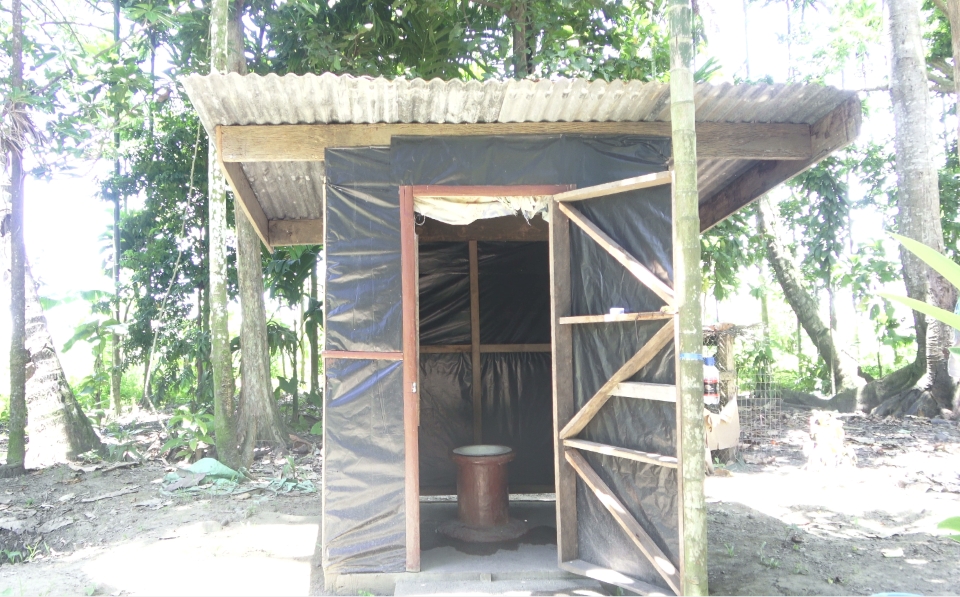BY JOHN HOUANIHAU
THE government’s Ministry of Health and Medical Services declared Bubulu Village in Ghaobata Ward, Central Guadalcanal Constituency, Non Open Defecation (NOD) under Community Led Total Sanitation (CLTS), the government’s flagship program.
The Ministry of Health and Medical Services (MHMS) is taking various steps under the CLTS to make all provincial rural communities address sanitation challenges, especially to help resolve the issues around open defecation in the country.
The Solomon Islands still practice open defecation, which impacts the health of individuals as well as their communities. In many parts of the country’s rural communities, open defecation (OD) is not the result of the absence of toilets but of the social acceptance of such behavior.
The Australian High Commission Representative, First Secretary (Health), Ms Elise Newton said during the event to celebrate the achievement made by Bubulu Village in Ghaobata Ward, Central Guadalcanal Constituency, after being officially declared a NOD community on Friday, September 15, 2023, that we are not just here to celebrate the achievement of the NOD status of this community but also to help us recognize the vital importance of the role sanitation plays in the overall development of the Bubulu village.
“Reaching this point where you declared No Open Defecation (NOD) and reaching that certification is a huge achievement. It’s something that everyone should be proud of. It’s a testament to the resilience, dedication, and hard work of all your community members.
“We are really pleased to hear that 21 villages in Guadalcanal Province have been involved in the program on their way to achieve NOD, making good progress towards every single village achieving this by 2030 based on the Sustainable Development Goal. And three communities so far, including Bubulu, have actually achieved that certification. That’s fantastic.
“It brings us one step closer to the outcomes that all of us are trying to achieve for a safer Solomon Islands,’’ she said.
Representatives from the Ministry of Health & Medical Services – Solomon Islands, Guadalcanal Province, the Australian High Commission, and UNICEF joined the community to witness this incredible accomplishment.
Likewise, Ms. Elise Newton said that the sanitation journey is just the beginning today, and that journey will continue.
“You have a journey around water, giving safe, secure water to your community, and all that would continue. But what we see reflects a really strong community that works together, and when we work together, we are stronger and we can make amazing things happen. So I am very confident that you will continue to do that,’’ she told community members of Bubulu.
She added that the children of Bubulu village would grow up in an environment where they have less chance of getting sick because of the disease that comes from open defecation (OD).
“I know you have learned that on this journey, and that would be a really important outcome. So just a little bit about Australia’s support for the health system in the Solomon Islands. The Australian Government is really proud and pleased to be a long-standing and very important partner to the health sector in the Solomon Islands.
“We are committed to working with the Ministry of Health and all the provincial health authorities around the country to improve access to health services and health outcomes. And we do that in partnership with the ministry of health in the first instance through the program that we call the Health Sector Support Program (HSSP), which has been going on for many years,’’ Elise Newton said.
Meanwhile, Guadalcanal Province Director of Acting Health and Medical Services, Mr. Moses Karuni, said he’s delighted to address the gathering on the occasion of the non-open desecration celebration of Bubulu village in Ghaobata Ward, Central Guadalcanal Constituency.
Guadalcanal Province Director of Acting Health and Medical Services, Mr. Moses Karuni speaking at the celebrations.
Mr. Karuni said in his remark that it is another milestone in the journey towards achieving non-open defecation (NOD) in Guadalcanal Province and the whole of the Solomon Islands.
“I wish to congratulate the Bubulu community for this great and fine achievement, and I wish healthy congratulations to all of us who are present here to be part of this event. I also want to extend my congratulations to the Guadalcanal Council of Women and Guadalcanal Provincial RWASH as implementing partners of UNICEF,’’ he said.
Mr. Karuni stated that the achievement was verified by the Guadalcanal provincial RWASH on behalf of the Rural Water Sanitation and Hygiene Unit of the Environmental Health Department under the MHMS.
He said that the Guadalcanal Province Government and the National Government both acknowledge the need to rapidly scale up access to rural water supply, sanitation, and hygiene in the country through their policies and plans.
“The Solomon Islands national development strategy (NDS) 2016–2035 articulates a commitment to meet sustainable development goal targets, including goal six to achieve water and sanitation for all universal access by 2030,’’ Mr. Karuni said.
He further said that, in addition, the Rural Water Supply, or RWASH, is a priority sector and key focus in the Ministry of Health and Medical Services National Health Strategic Plan, of which Guadalcanal Province (GP) is part.
He said that despite a solid sector policy and strategic plan, the need for an evidence-based, effective, and sustainable approach to WASH in Guadalcanal and the whole of the Solomon Islands is high.
He said that non-subsidized sanitation approaches such as CLTS have proven successful at the village level, as witnessed today, but are yet to be scaled up or produce better results.
“RWASH of the Environmental Health Division of the Ministry of Health and Medical Services adopted the community-led total sanitation approach, which promotes behavioral change by facilitating communities to access their sanitation practices and offering solutions towards addressing them, especially with regards to open defecation,’’ he said.
“Through the construction and use of toilets using their own resources without subsidizing the hardware component, That’s the same approach that was used in achieving this accomplishment in Bubulu village under UNICEF support for early childhood development (ECD) and WASH intervention in GP through the Australian Aid initiative on behalf of the Australian government,’’ added Karuni.
“Moreover, the combination of good work that has been carried out by the community leaders, women, and youth of Bubulu village following the CLTS triggering that was conducted by the Guadalcanal Council of Women Project Team in 2022,’’ he said.
“Undoubtedly, the benefit of access to WASH facilities, especially leaving in an open-defecation-free environment, impacts the education, health security, and social and economic wellbeing of the people. In this regard, I wish to commend the people of Bubulu village for their commitment to behavioral change and to encourage you to be steadfast in it,’’ said Karuni.
Mr. Karuni acknowledges all institutional structures put in place to ensure ownership and integration of the process; this includes the national leaders, community volunteers, chives, elders, women, youth, and children of Bubulu village, the GP Council of Women, and GP RWASH project staff.
He also recognized community leaders and chiefs from the surrounding communities who were invited to attend the important event.
“On this note, I wish to ensure all stakeholders that the government is committed to improved coordination, partnership, and implementation of the water, sanitation, and hygiene program, which is expected to address water, sanitation, and hygiene in our rural communities in our joint effort to tackle sanitation through a more robust implementation and coordination framework design under the RWASH program,’’ he said.
“I now declare that the Bubulu community is now a no-open-defecation-free community, meaning people in the community are no longer using the bushes, streams, and community compound for open defecation,’’ Karuni said.
He said that in 2010, the United Nations General Assembly declared safe and clean drinking water and sanitation a human right essential to full enjoyment of life and all other human rights.
“Sanitation statistics in the Solomon Islands are some of the worst in the world, and open defecation rates are the highest in the Southeast Asia Pacific Region. Solomon Islands is the leading country in the Pacific where we have poor sanitation, in particular open defecation,’’ he said.
The Acting Director said that in comparison to the 2016 National Rural WASH baseline reports, water access improved by only 54% and sanitation basic-level services by 13%.
He said that stunting is reportedly impacting 32% of the children, and 7% of the children under five die from diarrhea.
“This shows that there is a greater need to scale up sanitation through available approaches such as Community-Led Total Sanitation (CLTS) to ensure increased access and improve sanitation in rural communities.
“The Solomon Island Government (SIG) recognized this right and is determined that all Solomon Islanders will have safe and clean drinking water and sanitation and improve hygiene practices within the next ten years,’’ he said.
He also acknowledged RWASH as an important investment in the health of the people and future productivity for this Guadalcanal province and the country as a whole.

